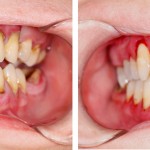
There is epidemiological evidence that people with diabetes mellitus (both type 1 and type 2) suffer with more periodontal disease and disease of greater severity. In addition poorly controlled diabetes is a recognised risk factor for developing periodontal disease. In recent years studies have suggested that a bidirectional relationship exists between glycaemic levels and periodontal disease. The aim of this review was to investigate the effect of periodontal therapy on glycaemic control in people with diabetes mellitus (DM).
Methods
Searches were conducted in the Cochrane Oral Health Group Trials Register, the Cochrane Central Register of Controlled Trials (CENTRAL), Medline, Embase, LILACS, CINAHL, ZETOC, Web of Knowledge, US National Institutes of Health Trials Registry (http://clinicaltrials.gov) and the WHO Clinical Trials Registry Platform databases. In addition the journals Annals of Periodontology and Periodontology were hand searched. There were no restrictions on the language or date of publication.
Randomised controlled trials (RCTs) of people with type 1 or type 2 DM with a diagnosis undergoing periodontal treatments were considered. Trials involving periodontal therapy versus no active intervention/usual care or periodontal therapy versus alternative periodontal therapy were eligible. Standard Cochrane methodological protocols were followed and the primary outcome was blood glucose levels measured as glycated (glycosylated) haemoglobin assay (HbA1c).
Results
- 35 RCTs involving 2565 patients were included.
- 29 (83%) were considered to be at high risk of bias, 4 (11%) at unclear risk and 2 (6%) at low risk.
- Low quality evidence from 14 studies (1499 patients) comparing periodontal therapy with no active intervention/ usual care demonstrated that mean HbA1c was 0.29% lower (95% CI; 0.48% to 0.10% lower) 3 to 4 months post-treatment, and 0.02% lower after 6 months (five studies, 826 participants; 95% CI;0.20% lower to 0.16% higher).
- 21 studies (920 participants) compared different periodontal therapies with each other. There was only very low quality evidence for the multiple head-to-head comparisons, the majority of which were unsuitable to be pooled, and provided no clear evidence of a benefit for one periodontal intervention over another. We were able to pool the specific comparison between scaling and root planing (SRP) plus antimicrobial versus SRP and there was no consistent evidence that the addition of antimicrobials to SRP was of any benefit to delivering SRP alone (mean HbA1c 0.00% lower: 12 studies, 450 participants; 95% CI 0.22% lower to 0.22% higher) at 3-4 months post-treatment, or after 6 months (mean HbA1c 0.04% lower: five studies, 206 patients; 95% CI 0.41% lower to 0.32% higher).
- There was insufficient evidence to conclude if any of the treatments were associated with harm.
Conclusions
The authors concluded:
There is low quality evidence that the treatment of periodontal disease by SRP does improve glycaemic control in people with diabetes, with a mean percentage reduction in HbA1c of 0.29% at 3-4 months; however, there is insufficient evidence to demonstrate that this is maintained after 4 months.
There was no evidence to support that one periodontal therapy was more effective than another in improving glycaemic control in people with diabetes mellitus.
In clinical practice, ongoing professional periodontal treatment will be required to maintain clinical improvements beyond 6 months. Further research is required to determine whether adjunctive drug therapies should be used with periodontal treatment. Future RCTs should evaluate this, provide longer follow-up periods, and consider the inclusion of a third ’no treatment’ control arm.
Larger, well-conducted and clearly reported studies are needed in order to understand the potential of periodontal treatment to improve glycaemic control among people with diabetes mellitus. In addition, it will be important in future studies that the intervention is effective in reducing periodontal inflammation and maintaining it at lowered levels throughout the period of observation.
Comments
As the authors have demonstrated there is low quality evidence that periodontal treatment results in an improvement in glycaemic control of about 0.29% in the short term. Other studies have demonstrated that a lower average HbA1c level by 0.2% was associated with a 10% lower mortality over 2-5 years. However there is no evidence that periodontal treatment results in a significant effect at 6 months, although, being a chronic condition ongoing periodontal maintenance would be important. The authors also highlight that a number of other factors have also been shown to influence glycaemic control so establishing direct relationship would be difficult.
Links
Primary paper
Simpson TC, Weldon JC, Worthington HV, Needleman I, Wild SH, Moles DR, Stevenson B, Furness S, Iheozor-Ejiofor Z. Treatment of periodontal disease for glycaemic control in people with diabetes mellitus. Cochrane Database of Systematic Reviews 2015, Issue 11. Art. No.: CD004714. DOI: 10.1002/14651858.CD004714.pub3.

Low quality evidence that periodontal treatment improves glycaemic control in diabetics https://t.co/QvCkQDxi3B
Periodontal treatment improved glycaemic control in diabetics https://t.co/QvCkQDxi3B
HbA1c was 0.29% lower in diabetics receiving periodontal treatment https://t.co/QvCkQDxi3B
Periodontal treatment reduces blood sugar levels in diabetic patients by 0.29% up to 4 months after care https://t.co/QvCkQDxi3B
Don’t miss – Low quality evidence that periodontal treatment improves glycaemic control in diabetics https://t.co/QvCkQDxi3B
[…] Dental Elf – 11th Nov 2015 – Low quality evidence that periodontal treatment improves glycae… […]
[…] Low quality evidence that periodontal treatment improves glycaemic control in diabetics […]